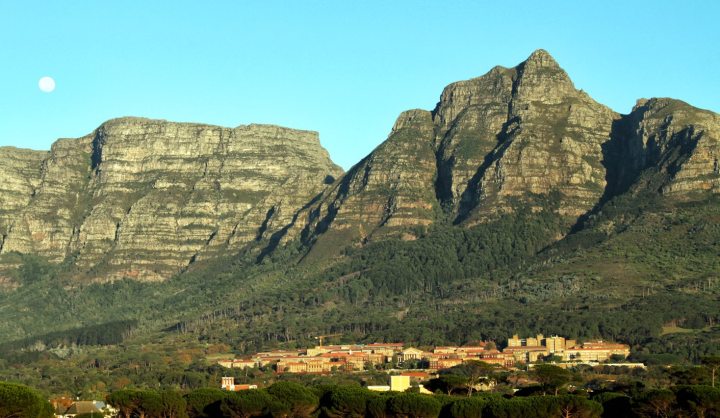South Africa
Op-Ed: Restorative justice at UCT

UCT’s December 2016 and February 2017 Convocation AGM raised many questions. One key question emerges: “How deep, wide and far should UCT’s restorative justice process go to advance social justice?” This question raises several related questions that require deep thought and discussion. By the undersigned UCT ALUMNI.
While we cannot ask and answer all these questions here, we attempt to explore some troubling areas that go to the heart of the gap between how a particular application of restorative justice is conceptualised, contextualised, practised and experienced.
Our own interventions via letters to the media encourage alumni to support the process agreed to by students and UCT’s executive, precisely because we have individually and vicariously encountered many of the issues raised by students during our time there. These “wicked issues” persist throughout this society. This is an opportunity for students, staff and the university (any university for that matter) to address these deep-seated conflicts innovatively.
As our contribution to this discussion, we limit this article to two related questions in an attempt to lay bare our assumptions and considered belief that an expansive (trans-historical), rather than a modest (individualised) application of restorative justice is appropriate for our alma mater, and for these times.
- As the institution, and by extension South African society, are parties to the conflict (via slow progress towards elimination of lingering societal and institutional racism and inequality), why are students the only ones to go into the process with different forms of “official charges” against them?
- What is the status of the “charges” that students and staff have made, and continue to level against the institution (that informed their protest actions and responses to militarisation)?
These questions are important for the following reasons:
- UCT does not contest the fact that institutional racism persists. Racism manifests in various aspects and forms. Some of these aspects and forms, and particularly their far-reaching individual and collective consequences, have not yet been acknowledged nor addressed. An expansive restorative justice process can surface and address these better than a modest approach can.
- In the March 2016 “On Transformation” letter from the VC’s desk, the VC makes the following admission: “As I see it, many on the campus had not been opposed to transformation but had felt this was someone else’s task and that they could just get on with their regular academic or administrative business.”
- This benign view obscures the weight of the impact that “business as usual” while “waiting for change” has in trans-historical context. It compounds trans-historical individual and collective disadvantage. At the same time it assures exponential growth of trans-historical individual and collective privilege. Put simply, Social Justice delayed is Social Justice denied.
- It is precisely the growing inequality chasm along racial lines, exacerbated by “slow change”, and the sociological and psychological denial of institutional racism as ongoing violence, that demand a more expansive approach to the intended restorative justice process.
- To achieve Social Justice, power needs to be balanced between the institution and its invisibilised causative violence; and those students that have engaged in visible ‘counter’ violence.
- A gap currently exists between transformation policy and practice. For example, current conflict resolution structures in the institution deal with interpersonal manifestations of racism and other injustices. These are delinked from patterns and a culture of injustice and denial. Individual perpetrators of institutionalised racism have the option to refuse conflict resolution. If they agree, confidentiality provisions ensure that patterns remain obscured. While current conflict resolution processes have the potential to facilitate individual catharsis, in the way it is institutionally set up, current structures leave the oppressive cultural and structural aspects of racism intact. It creates either “happy” oppressed, or violently angry oppressed people, and offenders that are free to reoffend due to the policy/practice gap.
- As the law criminalises individual violence, but has nothing in its arsenal to criminalise institutional violence (as far as we are aware), restorative justice becomes the venue where the artificial divide between victim and offender is collapsed.
- It therefore follows that if a modest view of restorative justice is pursued, and if this view makes a distinction between victims and offenders, the power imbalance will favour the institution. This will continue to pit students, staff and institution against each other.
- If, however, an expansive view of restorative justice is pursued, the focus will be on trans-historical inequality (cultural and structural violence) and its consequences for the institution, staff and students.
- This approach has the potential for everyone in the institution to confront its complex problem together, as equals. Institutional wrongdoing and student wrongdoing will and should be balanced, and competent restorative justice commissioners would be empowered to ensure that this process becomes a model for other institutions in society to follow.
We therefore argue that anything less than a trans-historical approach is bound to entrench divisions; escalate tensions; contribute to wastage of scarce resources, and will not move the institution or society forward.
Our support for this brave process (and deliberately not for “sides”) is based on a clear vision of a humane society. We trust our alma mater, challenged and supported by its visionary students, staff and alumni, to innovate and make a decisive break with the past – for the common good. DM
Photo of UCT by Flowcomm via Flickr
Signed:
- Abeedah Adams
- Glenn Allies
- Michelene Dianne Benson
- Ray Brink
- Gatto Chuckie
- Karen Daniels
- Jean Ann Elliott
- Joanna Flanders Thomas
- Sarah Henkeman
- June Knight
- Stephen Langtry
- Mary-Ann Naidoo
- Thulani Nxumalo
- Desiree Paulsen
- Leon Pretorius
- Melvin Rautenbach
- Ezelle Theunissen
- Vicki Trowler




















 Become an Insider
Become an Insider